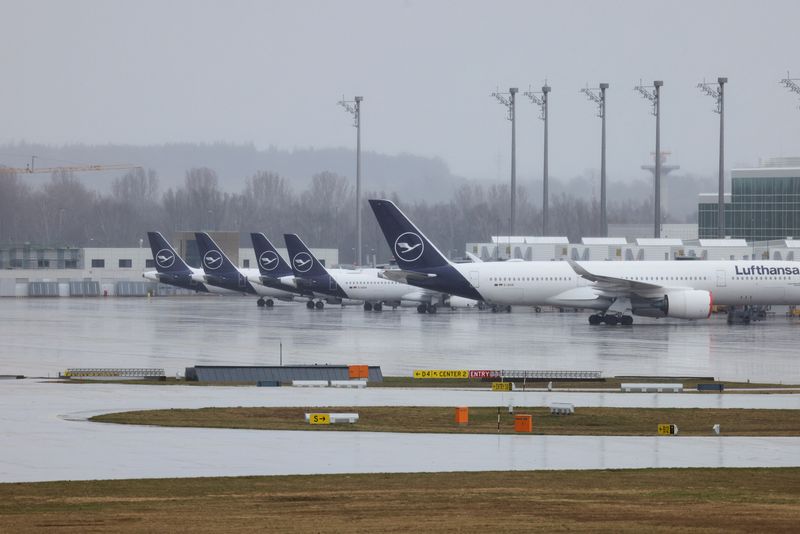By Klaus Lauer and Tom Sims
BERLIN/FRANKFURT (Reuters) - A massive strike in Germany was set to begin early Monday, crippling mass transport and airports in one of the biggest walkouts in decades as Europe's largest economy reels from soaring inflation.
In the hours running up to the strike, both sides dug in their heels, with union bosses warning that considerable pay hikes were a "matter of survival" for thousands of workers and management calling demands and the resulting action "completely excessive".
The strikes, which were scheduled to mainly start just after midnight and affect services throughout Monday, are the latest in months of industrial action that has hit major European economies as higher food and energy prices dent living standards.
Germany, which was heavily dependent on Russia for gas before the war in Ukraine, has been particularly hard hit by higher inflation as it scrambled for new energy sources, with inflation rates exceeding the euro-area average in recent months.
German consumer prices rose more than anticipated in February - up 9.3% from a year earlier - pointing to no let-up in stubborn cost pressures that the European Central Bank has been trying to tame with a series of interest-rate increases.
It has been a painful adjustment for millions of workers throughout the country as costs of everything from butter to rents rise after years of fairly stable prices.
"It is a matter of survival for many thousands of employees to get a considerable pay rise," Frank Werneke, head of the Verdi labour union, told Bild am Sonntag.
France has also faced a series of strikes and protests since January as anger mounts over the government's attempt to raise the state pension age by two years to 64.
But officials in Germany have made clear that their fight is only about pay.
The Verdi union is negotiating on behalf of around 2.5 million employees in the public sector, including in public transport and at airports. Railway and transport union EVG negotiates for around 230,000 employees at railway operator Deutsche Bahn and bus companies.
Verdi is demanding a 10.5% wage increase, which would see pay rising by at least 500 euros ($538) per month, while EVG is asking for a 12% raise or at least 650 euros per month.
Deutsche Bahn on Sunday said the strike was "completely excessive, groundless and unnecessary".
Employers are also warning that higher wages for transport workers would result in higher fares and taxes to make up the difference.
($1 = 0.9295 euros)
